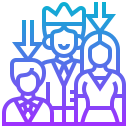Psychological Safety: The Soil Where Collaboration Grows
Make listening visible: paraphrase before replying, rotate a notetaker who captures insights, and pause before responses. In one product squad, this simple shift surfaced a quiet engineer’s risk warning that saved two sprints. What listening habit could your team adopt this week? Share your ideas and outcomes.
Psychological Safety: The Soil Where Collaboration Grows
Swap quick critiques for questions like, “Could you walk me through your reasoning?” In a design review, curiosity uncovered a constraint nobody named out loud. The team pivoted together instead of arguing. Practice three curiosity questions today and note how the mood changes. Tell us what surprised you.
